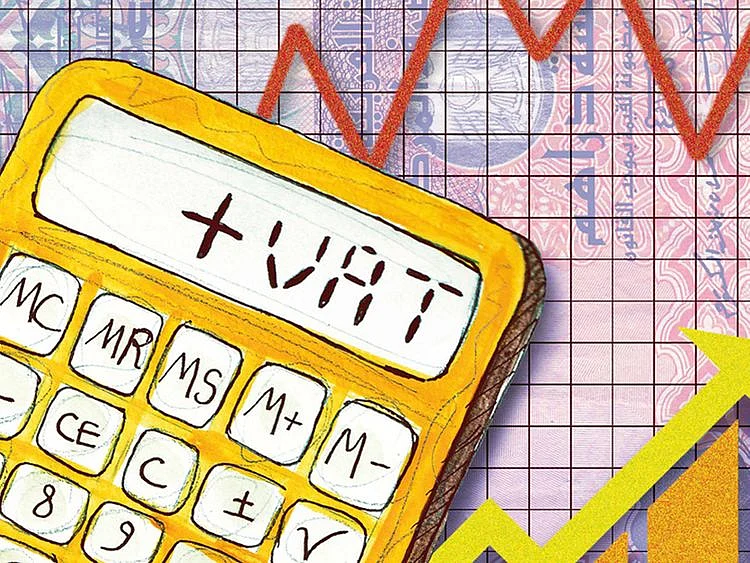UAE e-invoicing: Businesses must start now to be ready for mid-2026 launch
Switch to e-invoicing is a landmark move - UAE businesses can't afford to lag

Dubai: Soon, businesses in the UAE will have to start preparing for a landmark change in how they are billing transactions.
The UAE will rollout the switch to full e-invoicing only from July 2026 – but businesses need to sort their internal processes and not leave everything to the last minute, say industry sources.
Now, there are already companies, big and niche, that use e-invoicing across their operations, but for a significant number of UAE companies, much of the process still retains a paper element.
With full e-invoicing, the UAE is intent on taking all transactions between a buyer and a supplier online.
Because there is the recent history of how many of these businesses fared registering for UAE’s corporate tax program. It was only after repeated directives and the imposition – and later waiver – of administrative fines that the process picked up speed, especially among the SME community.
Why is e-invoicing important?
In the simplest terms, e-invoicing takes out the paper from all billing transactions. According to the UAE Ministry of Finance, the one clear benefit is to ‘reduce human intervention in certain business and tax reporting processes’. And this way, make ‘the UAE and its fiscal ecosystem more digitally-enabled’.
The full benefits of e-invoicing go far deeper, according to industry sources. For businesses, it ‘enhances transparency, operational efficiency, and trust across the tax ecosystem’, said Nimish Goel, GCC Leader at the tax consultancy Dhruva.
“One of the most immediate and practical advantages is the streamlined reconciliation of value-added tax (VAT) input credits. Standardized digital invoices reduce manual errors and facilitate faster, more accurate validation by both businesses and the FTA.
“Although the mandatory rollout is scheduled for July 2026, the time to act is now…”
When the process is rolled out from next year, all e-Invoices will be submitted in real-time and ‘securely stored by the Federal Tax Authority’, said Goel. “This eliminates the need for paper archiving and greatly improves audit readiness (for tax purposes). Over time, businesses will also benefit from reduced compliance risks, better cash flow visibility, and enhanced interoperability with regional and global trading partners.”
In a corporate tax environment, all of these matter for businesses in how each and every transaction is entered into. As Goel says, compliance with the rules of the land are central to e-invoicing.
When will e-invoicing start for UAE businesses?
Many large companies have already begun preparations.
“A pilot program is expected to launch later this year,” said Sumayya Zain, founder of Hallmark International.
“Phase 1 of the actual e-invoicing rollout is set for mid-2026. Early movers (in becoming ready to introduce e-invoicing in their operations) will have a competitive edge in terms of compliance and operational readiness.
"E-invoicing simplifies tax compliance. Key VAT data is auto-reported to the FTA, reducing paperwork and audit stress - and even helping fast-track VAT refunds."
What should UAE businesses watch out for?
“Once the Ministry of Finance publishes the official list of Accredited Service Providers (ASPs) , expected later in 2025 , businesses must engage with one of these providers to issue and receive e-invoices,” said Sumayya.
“System integration with the ASP will be key for smooth invoice transmission.
“Businesses should analyze their transactions and the resulting invoicing data against the data dictionary and ensure that they are compliant.”
What Ministry of Finance says about e-invoicing
The Ministry has set clear targets on what the local economy can expect as gains from the switch to paperless invoicing next year.
“Over the last 6 years, revenue from VAT has significantly contributed to the Emirates revenue,” the MoF says. “It is important that we create an ecosystem where both unintentional as well as deliberate efforts of VAT leakage are identified and addressed.
“E-Invoicing is one such mechanism that has helped countries minimize such leakages.” (A VAT ‘leak’ is defined as the inefficient processing of anything to do with VAT inputs or VAT rebates.)
Where should UAE businesses start on e-invoicing?
Businesses should begin by assessing the readiness of their existing financial systems and processes.
“Key steps include identifying internal stakeholders—especially across finance, IT, tax, and operations—and forming a cross-functional task force to oversee the transition,” said Goel.
“The Federal Tax Authority is expected to begin with large enterprises and gradually extend the mandate to small and medium-sized businesses. This staggered rollout mirrors successful e-invoicing implementations in other GCC countries, allowing businesses of all sizes sufficient time to prepare, test, and comply.”
Sign up for the Daily Briefing
Get the latest news and updates straight to your inbox
Network Links
GN StoreDownload our app
© Al Nisr Publishing LLC 2026. All rights reserved.
